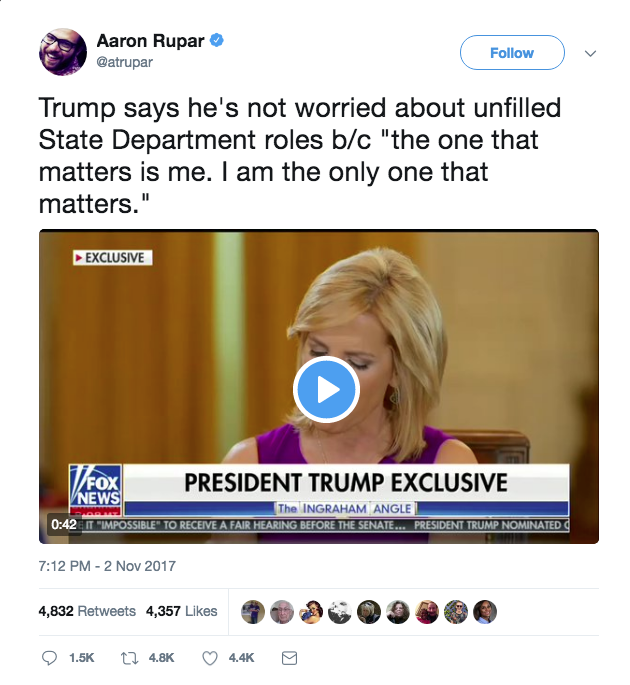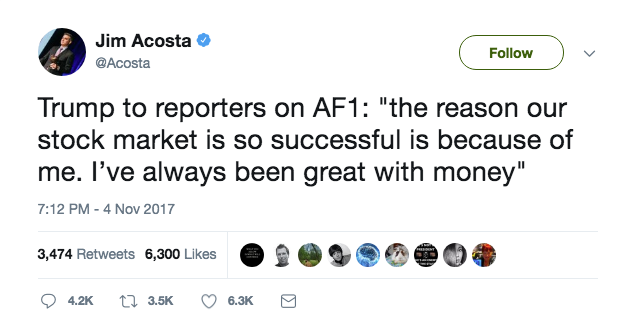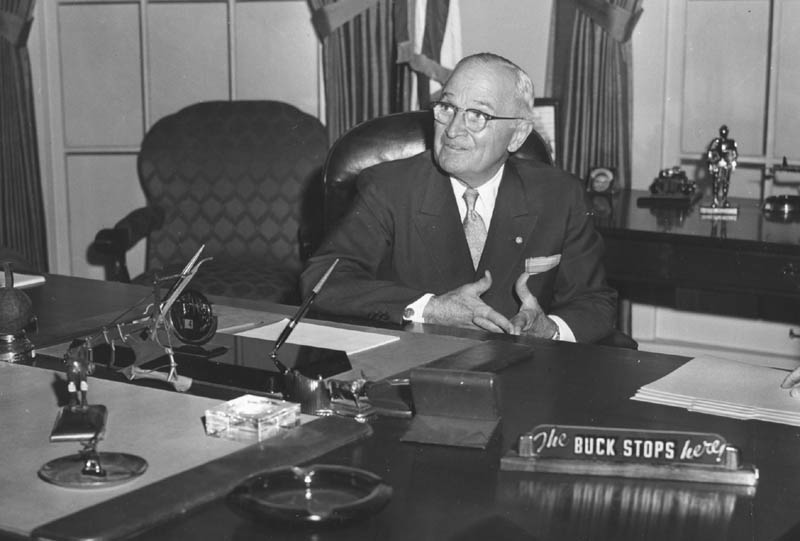November 16, 2007 by lonbud
…Not What I Do
When I learned President George W. Bush would be addressing the Federalist Society at a gala dinner last night in the nation’s capital, I sensed fodder for an I Just Have To Say post.
I couldn’t have possibly imagined the fertility in the offing.
Glenn Greenwald, as usual, was up this morning with the most germane take on Mr. Bush’s stupefying hypocrisy, but I could not pass up an opportunity to comment on the latest outrage from the man who has done more to destroy our once-great society than any single human being in history.
To fully appreciate the enormity of Mr. Bush’s lack of self-awareness and his utter disdain for the public he purports to serve, I suppose it would be valuable to understand something about his audience. The Federalist Society for Law and Public Policy (according to its website) is comprised of
conservatives and libertarians interested in the current state of the legal order. It is founded on the principles that the state exists to preserve freedom, that the separation of governmental powers is central to our Constitution, and that it is emphatically the province and duty of the judiciary to say what the law is, not what it should be.
One would think, based on his performance and that of his Department of Justice during the past six years and nine months, the president might look to the prospect of addressing such a group with a modicum of trepidation.
Not our Decider.
Mr. Bush — or, rather, his speechwriters, who Mr. Greenwald concluded must have been playing a huge joke on their boss — deigned to lecture the Federalists on the nature of the Constitution they so revere. The president actually managed to get the following words out of his mouth:
When the Founders drafted the Constitution, they had a clear understanding of tyranny. They also had a clear idea about how to prevent it from ever taking root in America. Their solution was to separate the government’s powers into three co-equal branches: the executive, the legislature, and the judiciary. Each of these branches plays a vital role in our free society. Each serves as a check on the others. And to preserve our liberty, each must meet its responsibilities — and resist the temptation to encroach on the powers the Constitution accords to others.
Yes, that helpful Civics tutorial was brought to you by the poster child for the Unitary Executive, by the Commander-in-Chief who has routinely issued signing statements reserving to him alone the perogative to ignore and abrogate the very laws to which he affixed his signature, by the man on whose watch the Department of Justice was reduced to a political adjunct of the Republican Party, by the man whose contempt for the rule of law trumps even that of Richard M. Nixon, who famously said, “Well, when the president does it, that means that it is not illegal.”
The real wonder here, in the final analysis, is not that Mr. Bush is capable of such rank delusion, we’ve come to expect that. What I can not understand is how the man escaped a tar-and-feathering, or being pelted with rotten fruit, or being waterboarded by the good Federalists.
I mean, his entire presidency, from the Supreme Court decision that awarded him the office to his current effort to confer retroactive immunity on the telecommunications industry for illegal spying on American citizens, stands diametrically opposed to the very principles on which the Federalist Society was founded.
Then again, the setting aside of principles has a long, non-partisan history.



Tam O’Tellico - November 17, 2007 @ 10:48 am
Lon,
I took the liberty – oops – please pardon this brief aside while I suggest that liberty, like ‘genius’, has become so devalued as to no longer have a basis in reality. For that sad fact, we can blame the Neocon Nietzsches and Onward Christian Stormtroopers, who see no harm, fault or irony in the notion of imposing their dark vision of ‘liberty’ at the point of a gun or a bunker-buster.
But as I was saying, I took the liberty to review some of the material cited in your piece. I one comment in particular comical, comical only because its author was Robert Bork, the prince of deadpan delivery of unintended comic nonsense. Here ’tis:
“Liberalism itself (putting aside, for the moment, its egalitarian element) is nothing but an effort to struggle free of restraints on the individual.”
Let’s leave aside the sad fact that, based on the evidence of his own tyrannical judicial temperament, Robert Bork knows as little about liberty or liberalism as George W. Bush. Can anyone, including Bork, explain how his accusation does not apply equally to libertarianism? But alas, I’m sure that irony is lost on both Bork and Bush, just as the irony is lost on the Neocons that their ‘compassionate conservatism’ has been revealed as a false doctrine, an oxymoronic red-headed stepchild of conservatism.
The only virtue in all this is that the Neocon’s have once again reminded us what comes first with conservatism and that is the con.
“Open” Mike - November 17, 2007 @ 11:26 am
Just finished an interesting video shoot for a new interactive website with the working title of “Left vs. Right”, sort of a spin off of Daily Show style commentary. One of the fun jokes, based on true facts; the set up story “Laura Bush just addressed the troops in Kuwait saying that the whole Bush family is praying for peace in the world.” The comeback “She and her husband then went on to eat 20 sticks of deepfried butter while praying for lowered cholesterol”. How many more days must we suffer?
“Open” Mike Fleming
lonbud - November 17, 2007 @ 3:47 pm
429, Mike.
Bookmark this and never lose hope.
Tam O’Tellico - November 24, 2007 @ 10:11 am
A Tale of Two Citizens
It was the best of times; it was the worst of times. It was the worst of times because the nation was at war, a war begun and waged on half-truths and outright lies, a war that strained the military to the breaking point, a war that drained the coffers of the nation, a war that dragged on and on with no end in sight; it was a time when an egomaniacal President, who considered himself above the law, deceived the people and trampled cherished freedoms in pursuit of his own unfettered authority and his own vainglorious legacy; it was a time when men without conscience elbowed and bribed their way to fat government contracts and made obscene profits from the sacrifice of poor boys who bled and died in a suspect cause halfway around the world; it was a time when those who considered themselves morally superior saw no evil, heard no evil and spoke no evil about any of this.
It was 1972, and President Richard Nixon had just been re-elected with more than sixty percent of the popular vote. The electoral count was even more telling; Nixon received 521 votes, while his opponent, George McGovern, received only 17. It was a rout of historic proportions.
Nixon’s re-election had been an absolute certainty, but his paranoia snatched defeat from the jaws of overwhelming victory. Throughout his career, he relied on political pranks and smear tactics, but this time his minions got caught in a break-in at the Watergate. Whether or not he approved of the break-in, he conspired to cover it up. But all the President’s men couldn’t keep the lid on, and Nixon was forced to resign.
But those dark days were also the best of times because they produced a number of unlikely heroes. Some, like Bob Woodward, Carl Bernstein and Ben Bradlee of the Washington Post, became famous. But others, like Alexander Butterfield, the man who first revealed the existence of the tapes that exposed the truth about the cover-up, faded into the pages of dusty history books.
Such was the fate of Eliot Richardson, the Attorney-General who resigned rather than carry out Nixon’s order to fire Archibald Cox, the Special Prosecutor assigned to investigate the Watergate break-in and the conspiracy to cover it up. Deputy Attorney-General William Ruckelshaus also refused to fire Cox and resigned in protest. The event became infamous as the Saturday Night Massacre.
This was not the first time Richardson had displayed courage. He was a war hero who had been among the first troops to land at Normandy on D-Day. After the war, he went to Harvard Law School, where he was editor and president of the Harvard Law Review. He was highly-regarded in Republican circles; he was handsome, articulate, intelligent, educated, competent and conservative. In short, he was Presidential material. He was, that is, until he dared defy a Republican President.
Such courage is always rare, especially in politics, where loyalty is far too often more important than competency or honesty. That holds true even when loyalty is misplaced – as we have witnessed with George Bush and Alberto Gonzales. It is impossible to imagine Gonzales refusing to do anything Bush ordered, no matter how slimy or illegal. The sordid episode in which he tried to strong-arm incapacitated Attorney-General John Ashcroft is proof of that.
But that episode, and others, revealed another citizen who was not afraid to stand up to his superiors. The reason Gonzales found it necessary to bully Ashcroft was because Deputy Attorney-General James Comey, then acting Attorney-General, refused to recertify Bush’s blatantly illegal wiretapping order. Comey and Assistant Attorney-General Jack Goldsmith were two of the strongest voices opposing the notion of a Unitary President with absolute powers.
Comey sealed his doom in this loyalty-uber-alles administration when he appointed Special Prosecutor Patrick Fitzgerald to investigate the outing of covert CIA agent Valerie Plame. Fitzgerald’s investigation led to the conviction of Scooter Libby, Dick Cheney’s right-hand man, for lying about his role in the Plame affair. In a controversial move, the President commuted Libby’s sentence, a move seen by many as necessary to buy Libby’s silence.
Apparently, former Press-Secretary Scott McClellan, like Alexander Butterfield before him, could not be bought. His recent revelations have rekindled interest in the Plame case, and it remains to be seen if the “un” will be removed from the list of Libby’s unindicted co-conspirators, a list which likely includes Karl Rove and Dick Cheney, and might even include the President himself. If the allegations can be proven, the crime and cover-up certainly qualify as “high crimes and misdemeanors” that could result in the impeachment of the Vice-President and the President.
A misbegotten unresolved war, a President who considers himself above the law, the triumph of dirty politics, the unrestrained greed of well-connected corporations – it would seem this is once again the worst of times. Whether it remains so depends to a large extent on whether we are blessed with men like Eliot Richardson and James Comey or cursed with men like Scooter Libby and Alberto Gonzales.
©2007 Tom Cordle